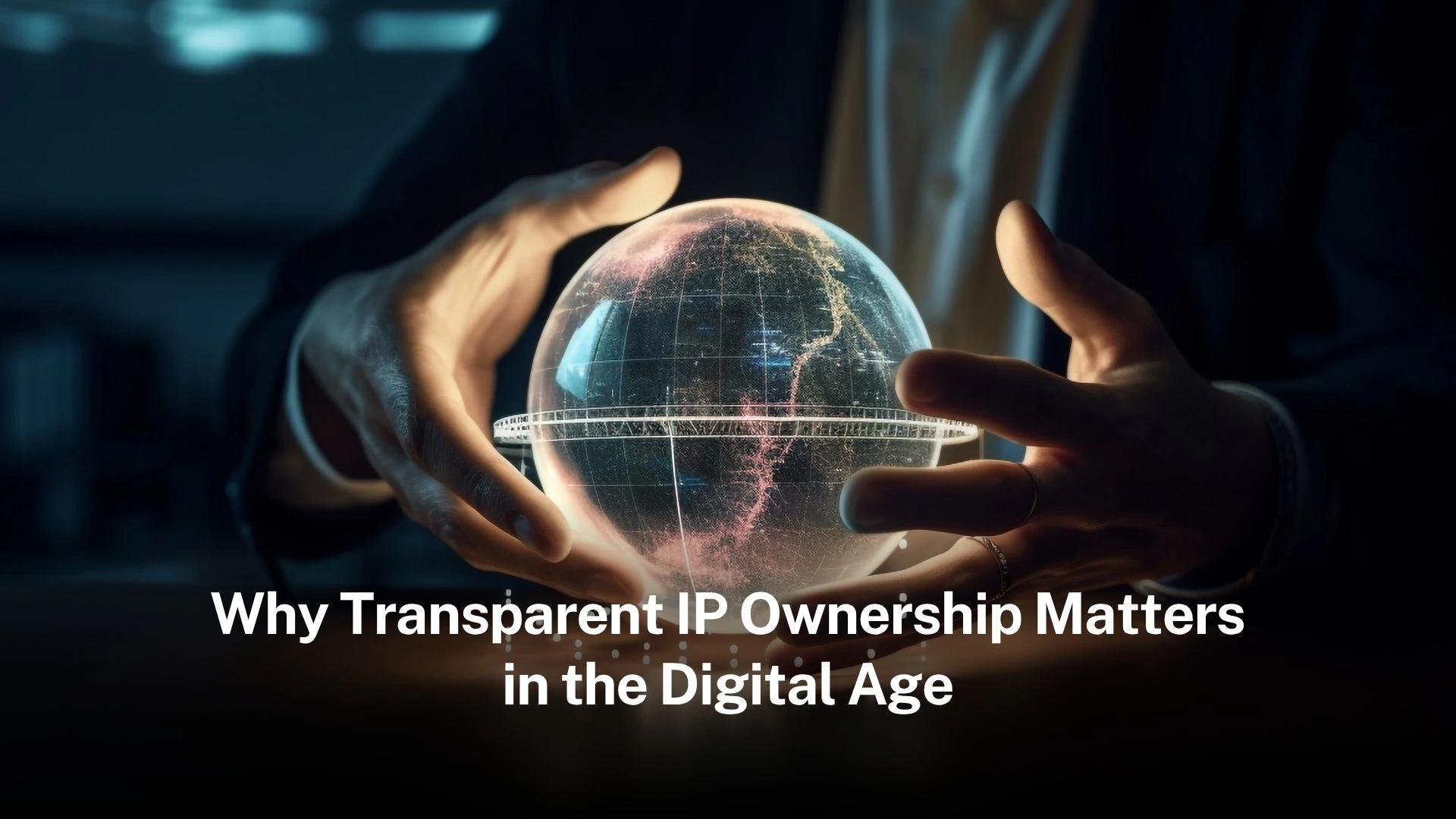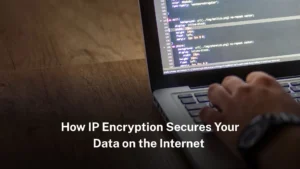Clear IP address ownership prevents disputes. It strengthens business operations. It enhances trust for creators and investors in a digital economy.
Table of Contents
ToggleTransparent IP address ownership prevents legal conflicts. It ensures secure business operations.
Proper documentation supports investment opportunities. Registration supports these opportunities too. It makes opportunities more reliable. It strengthens the value of digital assets.
Understanding IP Address Ownership in the Digital Era
Digital technology continues to evolve. It advances at a steady and consistent pace. IP address ownership has become a critical element. It helps organizations maintain control over their online infrastructure.
IP addresses underpin core business functions. They enable operations in data centres. They power cloud-based services. They are foundational to how businesses communicate over the internet.
IP addresses serve essential roles. They identify connected devices. They identify active websites. They identify available online services. No digital operation can function without this basic identification.
Certain industries depend heavily on IP addresses. Technology firms are among these industries. Telecommunications companies are too. For these businesses, IP address ownership is a valuable asset.
It serves practical and strategic purposes. It allows for the management of digital infrastructure. It enables the security of that infrastructure. Clear ownership guarantees a key benefit. It ensures uninterrupted access to IP resources.
Businesses use these resources in diverse ways. Website hosting is one common application. Managing data traffic is another. IP addresses offer additional value. They can be monetized. They can be licensed. This creates an extra revenue stream for companies.
Mark Lemley is an expert in internet law. He holds a faculty position at Stanford Law School. He emphasizes the critical value of transparent ownership. He states the following clearly. “Clear IP address ownership is a legal requirement. It is more than that. It is a cornerstone of trust in the digital ecosystem.
Transparent ownership prevents disputes. It ensures fair access to resources. It supports smoother business operations.”
The Risks of Unclear IP Address Ownership
Businesses lack clear IP address ownership. They face multiple risks as a direct result. Uncertainty surrounds the ownership of a specific IP address. This uncertainty can lead to legal disputes.
Two parties may claim rights. They claim rights to the same IP address. The resulting conflict disrupts business operations. It hinders access to digital services. It damages the reputations of involved parties.
Startups face greater challenges in this area. Unclear IP address ownership is more problematic for them. Startups often rely on stable and secure digital infrastructure. Unclear ownership threatens this stability.
Potential investors may hesitate. They hold back from funding certain ventures. These ventures lack documented control. That control relates to their IP addresses. Investors seek to avoid unnecessary legal risks.
Business partners may avoid collaboration. Ambiguity about IP ownership causes this avoidance. Growth becomes limited as a consequence. The scalability of the business is negatively affected.
Cloud hosting services provide a clear example. Companies lack clear ownership. This ownership relates to their blocks of IP addresses. They encounter significant difficulties. These difficulties involve maintaining their server infrastructure.
Negative outcomes may follow. Loss of service is a possible outcome. Costly transitions to new systems may be needed.
Clear agreements are vital. Formal agreements are equally vital. They help mitigate these risks effectively. Contracts assign IP address ownership. That ownership is assigned explicitly to the company.
Detailed records are maintained. These records track the allocation of IP addresses. Disputes are resolved at an early stage. They are addressed before they escalate into larger issues.
Tools to Ensure Transparent IP Address Ownership
Businesses aim to avoid specific risks. These risks are both legal and operational. They stem from unclear IP address ownership. Businesses can take targeted steps. These steps establish clear and defensible ownership. Key steps include the following:
Contracts and agreements: Businesses work with different stakeholders. These stakeholders include employees. They include contractors. They include business partners. All agreements must assign IP address rights. Those rights are assigned explicitly to the company. Employment contracts fall under this requirement. Contractor agreements do too. Co-founder agreements are included as well. These documents state a clear fact. The company holds ownership of the IP resources.
Non-disclosure agreements (NDAs): NDAs serve a specific and important purpose. They are used during discussions about IP addresses. These discussions involve third parties. NDAs protect confidential information. They specify two key details. They specify how the IP address will be used. They specify how it will be maintained over time.
Registration: Patents require formal registration. Trademarks require registration as well. IP addresses need registration too. They must be registered with relevant authorities. Regional internet registries (RIRs) are such authorities. Registration achieves two key goals. It formalizes the ownership of IP addresses. It provides legal protection for that ownership.
Documentation: Detailed records are crucial for clarity. These records track the allocation of IP addresses. They cover three key stages of IP management. The first stage is the creation of IP resources. The second is their development. The third is their distribution. These records serve a practical role. They act as concrete proof of ownership. That proof is needed in the event of future disputes.
The World Intellectual Property Organization (WIPO) supports this approach. It highlights a key benefit of thorough documentation. Maintaining accurate records improves legal defensibility. This defensibility applies specifically to digital assets like IP addresses.
IP Address Ownership in Collaborative and Open-Source Environments
Collaborative projects involve multiple contributors. Open-source projects share this characteristic. Contributors come from diverse professional backgrounds. Digital ecosystems grow more interconnected each day. This interconnection brings about shared resources. Multiple contributors may share the same IP address space. They may share related infrastructure. This sharing complicates the question of IP address ownership.
Businesses that operate in collaborative environments have a key need. They need clear ownership agreements. These agreements are essential for smooth operations. Contributor agreements outline specific terms. They outline how IP addresses are assigned. They outline the permitted uses of those addresses. They outline who holds the rights to digital resources.
Clarity in these agreements achieves important results. It prevents future disputes from arising. It ensures all parties understand their legal rights and responsibilities.
Kalyan Perumalla is a technology IP consultant with extensive experience. He explains a critical issue in collaborative settings. “Collaborative environments involve multiple parties. These parties contribute to digital resources. IP addresses are prime examples of such resources. Clear agreements are not in place. Enforcing ownership rights becomes almost impossible.”
IP Address Ownership and Investor Confidence
Investors evaluate startups on a regular basis. This evaluation happens more and more frequently in the digital age. They base their assessments on IP portfolios. IP address ownership is a key component of these portfolios.
Clear ownership requires proper documentation. It sends two key signals to investors. The first signal is effective management. The second is legal compliance. This signaling reduces the perceived risks of investment. It increases the chance of securing the necessary funding.
Startups that adopt a solid IP address management strategy gain advantages. They are more likely to attract potential investors. They achieve higher valuations in the market. They negotiate more favourable business deals.
Clear ownership also supports other important business goals. It makes long-term contracts easier to secure. It facilitates valuable partnerships. These elements are essential for growth. That growth occurs within the competitive digital economy.
Protecting IP Addresses in the Age of Digital Content and AI
New technologies are on the rise globally. Artificial intelligence (AI) is one prominent technology. Digital content platforms are another. IP address ownership becomes more complex as these technologies advance. This complexity grows in tandem with technological development.
AI systems depend on shared infrastructure. This reliance is a common feature of AI operations. Digital content has unique vulnerabilities. It can be copied rapidly without authorization. It can be modified without consent. These actions create potential disputes. Those disputes center on the ownership of related IP addresses.
Businesses face these challenges directly. They need robust IP address protection strategies. These strategies include specific tools and approaches. Digital rights management tools are one such approach. Licensing strategies are another important component.
A key step in these strategies is documentation. All digital resources must be clearly documented. IP addresses are included in this documentation. They must be legally protected to avoid disputes.
Global Considerations for IP Address Ownership
Digital businesses operate across international borders. This is a common practice in the global market. Securing IP address ownership becomes more complex in this context. That complexity increases when dealing with multiple jurisdictions.
Countries have different legal frameworks. These frameworks govern the management of IP addresses. Two types of knowledge are key for global operations. The first type is knowledge of local regulations. The second is knowledge of international treaties. Effective global IP address management requires both.
The Patent Cooperation Treaty (PCT) exists to support businesses. It helps businesses protect their IP addresses across national borders. The Madrid Protocol serves a similar supportive role. These are prominent examples of international treaties.
Businesses that operate globally have a specific need. They need to understand these treaty systems. Businesses that plan to expand their reach also need this understanding. It is essential for their long-term success.
Technology Tools Supporting IP Address Management
Modern software tools offer practical assistance to businesses. They help businesses manage their IP address portfolios. This management process becomes more efficient with these tools.
IP management platforms provide specific, useful features. One core feature is version control for IP records. Another is automatic record-keeping to reduce errors. Compliance monitoring is also included as a key feature.
These tools deliver clear, measurable benefits. They reduce the administrative burdens on staff. They help businesses stay compliant with regulations. Those regulations include international standards.
Businesses that use technology for portfolio management gain protection. They protect their valuable digital assets. Their IP address ownership remains clear. It remains legally enforceable in case of disputes.
Ethical and Economic Impacts of Transparent IP Address Ownership
Transparent IP address ownership has two key roles in the digital economy. It supports innovation across industries. It fosters entrepreneurship among individuals and teams.
Clear ownership ensures fair treatment for all parties. Creators receive the recognition they deserve. Businesses receive recognition too. Both creators and businesses receive fair compensation. That compensation is for their contributions to digital infrastructure.
It also facilitates three important economic activities. It facilitates international trade. It facilitates investment in digital projects. It facilitates licensing agreements between parties. These activities support growth. That growth targets the global digital economy as a whole.
Best Practices for Maintaining Transparent IP Address Ownership
Businesses aim to establish and maintain clear IP address ownership. They should follow these evidence-based best practices:
Conduct IP audits on a regular, scheduled basis. Update all related records promptly after each audit.
Educate employees about their IP-related responsibilities. Educate collaborators with the same focus and detail.
Use contracts consistently in all business relationships. Use licensing agreements with the same level of consistency.
Monitor for potential IP address infringements actively. Act proactively when infringements are identified or suspected.
Integrate IP management strategies with core business goals. Securing funding is one such key goal. Establishing strategic partnerships is another.
Frequently Asked Questions
1. What does transparent IP address ownership mean?
Transparent IP address ownership refers to having clear, accurate, and publicly traceable records of who owns or leases an IP block. This includes registered contact details, legitimate allocation history, and proper documentation with regional internet registries (RIRs).
2. Why is transparency important for cybersecurity?
Clear ownership records help security teams assess trust levels, validate traffic sources, and detect malicious actors faster. When IP blocks have unclear or falsified records, attackers can hide behind them, increasing risks like DDoS abuse, spam, phishing, and botnet operations.
3. How does transparent IP ownership benefit companies leasing IP addresses?
Businesses leasing IPs can avoid high-risk or blacklisted ranges. Verified ownership reduces fraud, prevents disputes, and ensures smooth onboarding with cloud providers, ISPs, and hosting environments.
4. Can unclear IP ownership lead to legal or operational problems?
Yes. IP blocks with incomplete or misleading registry information can trigger compliance issues, cause service disruptions, or lead to disputes with RIRs. Companies may even lose access to leased or purchased IP ranges if ownership cannot be proven.
5. How can organizations verify transparent IP ownership before using an IP block?
Organizations can check ownership through RIR WHOIS databases, RDAP records, IP reputation tools, and verifying documentation such as LOAs (Letters of Authorization). Reputable brokers and leasing platforms also provide audit trails to prove legitimate ownership.



